Modular Conveyor System
Self-driven, electric e-Carts from Krups Fördersysteme optimize the assembly and testing track in the battery pack production of a German car manufacturer; Turck's robust IP67 PLCs provide the decentralized operation control
With its “LOGO!MAT e-Cart” system Krups Fördersysteme is responding to the increasing requirements of modern assembly and test automation in terms of safety, low maintenance and communication. A zero maintenance track and intelligent self-driven carts, combined with decentralized system components with standard controls ensure the possibility of flexible and safe assembly automation. This increases availability and allows flexible processes for small batch sizes.
The individual modules of the track are autonomously controlled by Turck's TBEN-L-PLC. With the multiprotocol-enabled IP67 PLC, Krups can offer standard and optimized control sequences for the individual components. Customers can thus reduce the time required for wiring and commissioning and expand the system easily.
Decentralized control for modular conveyor systems
Krups uses a concept with a few standard modules: Rotate modules, shuttle modules, stopper modules and indexers. Today each module operates externally as a black box, which simply communicates bidirectionally with the central controller in both directions via a bus connection. In-house, Krups calls these conveyor system modules which have their own intelligence smart modules. The company therefore looked for autonomous controllers ten years ago, which can be installed directly on the modules.
Since Turck launched its TBEN-L-PLC block controller on the market a few years ago, Krups has been able to save the effort required for a self-build. The company is now using the IP67 controller in many machine models – not only in the e-Cart system. The communication to the drives or valve blocks and other components of the module is implemented via a bus interface, while the communication to the main controller is mostly implemented via Profinet.
“We now have the benefit: The modules can be deployed immediately and without the need for any other field programming device, i.e. replace, insert, data backup,” explains Christian Mies, control developer at Krups. In addition, the range of protocols offered by the compact controller pays for itself.
e-Cart system saves power in battery production
For the battery pack production of a German car manufacturer, Krups realized a conveyor system with 130 self-driven carts, a kilometer of conveyor track, 70 turntables and around 140 stoppers. 10 stoppers use a TBEN-L-PLC jointly as a gateway to the customer's main controller. This considerably reduces the number of bus nodes required for the customer.
Unlike most conventional systems it is possible to communicate with the carts of the e-Cart system. NFC (near field communication) units are provided at the stoppers in order to use the TBEN-L-PLC as a gateway to implement communication between the main controller and the carts. In this way, carts can be removed depending on their state or the presence of warning messages. Another benefit: When the carts are waiting, they do not consume any power.
Less wiring due to IP67
Krups has recognized the work that can be saved with the IP67 technology. “Just routing the 24V cables and signals to the twelve controllers on the stoppers and labeling would be very labor intensive. The price of the TBEN-L-PLC covers this easily,” IT manager Christian Mies expresses his appreciation. The e-Cart system is not only energy-saving and fail-safe, it also enables more flexible processes as outlined in Industry 4.0 model scenarios and also already implemented.
- OTOMOTİV
- Otomobil Üretiminde Gövde Algılama
- Reliable Skid Detection in Automotive Production
- Error-free JIS Order Picking for Bumpers
- Akü Üretiminde Lazer Sensör İle Metal Parlak Silindirleri Algılama
- RFID Bus Modu Lityum-İyon Pillerin Kalitesini Olmasını Sağlar
- Daldırma Kaplama Hattı Seviye Ölçümü
- Merkezi Yağlama Sisteminde Seviye Kontrolü
- Tutkallama Robotunda Kalite Güvencesi
- İnklinometre Platform Hizalanmasını Hızlandırır
- Paralel Durum İzlemeli Motor Kontrolü
- IP67 I/O Modülü ile Gripper Üzerindeki Emniyet Sinyallerinin Kontrolü
- CNC Tezgahlarında Soğutma Yağlarını Kolayce İzleyin
- Pres
- Gövde
- Boyahane
- Montaj
- Motor & Aktarma
- Robotik Hücreler İçin Alan Koruma
- UHF RFID İLE ÜRÜN-SEVİYE TESPİTİ
- Supply of cooling lubricant in machine tools
- Basınç Tesislerinde Hidrolik Basıncı Kontrol Edilmesi
- Makine Kaldırma Süreçlerinde Ölçme Basıncı
- Otomotivde Kaynak Ucu Tespiti
- Başarı Hikayeleri
- Decentralized Safety Technology for Modular Production
- Modular Conveyor System
- RFID ve I/O SİSTEMLERİNDE GÜVENLİK ÇÖZÜMLERİ
- RFID Guides AGV in Suspension Production
- IO-Link Bağlantı Kutuları ile Donanmış Egzos Üretimi
- Arka Havalandırma Üretiminde İşparçası Taşıyıcısının Tanımlanması
- Kaynak Somunu Algılama
- RFID ile İzlenebilirlik
- Motor Üretiminde RFID
- RFID Tanımlama ile Tampon Üretimi
- Boya Atölyeleri için Çözümler
- Kaynak ve Montaj Sensörleri
- Montaj Sistemleri için Açı Sensörleri
- Takım Tanımlama
- Enjektör Nozullarının RFID ile Tanımlanması
- Araç Gövdesi Üretiminde RFID
- IO-Link Diferansiyel Dişlisi Üretimini Kolaylaştırıyor
- KİMYA
- Decentralized Automation in Ex Areas
- RFID Control of Tube Connections in the Ex Area
- Detection of Pigs
- Remote Signal I/O
- Easy Connection of Field Devices
- Signal Processing with System I/O in the Control Cabinet
- Signal Separation with Interface Technology in the Control Cabinet
- Hortum Bağlantılarının Tanımlanması
- Efficient Monitoring of Cabinets in the Field
- Monitoring of Quarter Turn Actuators
- Planning and Assembly of System Solutions
- Success Stories
- EXCOM I/O Sistemi Kontrol Odalarınızda Yer Açıyor!
- Bölge 2 ve 22'de RFID
- Verimli Kalite Kontrol
- Kendinden Güvenli Saha Haberleşmesi
- Proses Kontrol Sistem İşbirliği
- Riskli Bölge için Uzak I/O
- Çiftli Valf Pozisyon Geribeslemesi
- Fieldbus ile Esneklik
- Uzak I/O ile Varlık Yönetimi
- Zorlu Ortamlar için RFID
- ENERJİ
- Gıda ve İçecek
- Rulo Makinalarında Hamur Kalınlığı Kontrolü
- Gıda Kaplarının Tanımlanması
- Kapların Kontrolü
- Valf Pozisyonu Tespiti
- Boru Dirseklerinin Tespiti
- Çikolata Kalıplarının Tanımlanması
- BAŞARI HİKAYELERİ
- Grist for the Mill
- Track and Trace in Meat Production with RFID
- Patates Üretiminde Temassız Enkoder
- Gıda Dağıtım Merkezinde UHF RFID
- Çikolata Üretimi için RFID
- Gıda Üretiminde Dağıtılmış I/O
- İçki Fabrikaları için Uzak I/O Çözümleri
- Otoklavlar ve RFID
- Çikolata Üretiminde Şeffaflık
- Konveyörler için IP67 Güç Kaynakları
- Gıda Ürünleri Deposunda Tanımlama
- Logistics
- MOBİL UYGULAMALAR
- Condition Monitoring Sensor Automates Climate Control
- Automatic Slope Compensation
- Distribution Lines for Field Sprayers
- TARLA PULVERİZATÖRÜNDE AÇI ÖLÇÜMÜ
- Determining the Boom Angle Position
- Birleştirme Biçiminde İki Eksenli Eğim Ölçümü
- Erişim İstifleme Cihazlarında Çarpma Koruması
- Success Stories
- Position Measurement with RFID and Encoder
- Speed Control via Radar Sensor QT50
- RFID Guides AGV in Suspension Production
- SÜPER YATLAR İÇİN BLOK I/O MODÜLLERİ
- Deniz Araçlarında Temassız Enkoder
- Toz Azaltmak için I/O
- Kabin Soğutma
- Hızlı Bağlantı Kesme
- Aşırı Soğuk için Otomasyon Çözümleri
- Vinçler için Uzak I/O
- Sağlam Ağır Metal Kaldırma
- Eğlence Treni Pozisyonlanması
- Mobil Makina Çözümleri
- Hassas Yükseklik Pozisyonlama
- Kritik Açı Tespiti
- Platformlar için Açı Sensörü
- Petrol ve Gaz
- Paketleme
- Dağıtılmış RFID Paketi Doğrulaması
- Identification of Printing Color Cartridges
- Reliable Operation of Machines
- Container Check
- Dolum Hatlarında Kapakların İzlenmesi
- Değişim Süreçlerinin İzlenmesi
- Identification of Test Bottles
- Çekilmiş Kahve Seviye İzleme
- Gemilerde Seviye Tespiti
- Detection of Transport Containers
- Başarı Hikayeleri
- İlaç
- RFID İle Uçtan Uca Numune Takibi
- RFID Control of Tube Connections in the Ex Area
- Decentralized package verification for pharmaceutical products
- Control of Valve Interfaces
- Monitoring of Quarter Turn Actuators
- Detection of Pipe Elbows
- Remote Signal I/O
- Planning and Construction of Super Skids
- Easy Connection of Field Devices
- Identification of Cryovessels
- Identification of Mobile Containers
- El Cihazları İle Mobil Konteynerlerin Tanımlanması
- Identification of Hose Connections for Precursors
- Identification of Hose Connections in Sterile Areas
- Identification of Hose Connections in Ex Zone 1
- Identification of Big Bags and Bioreactors
- Identification of Single-Use Applications
- Success Stories
- Yarıiletken
Select Country
Turck worldwide


-turck-image.jpg)
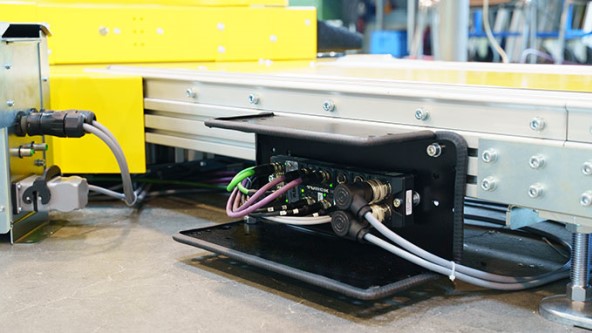
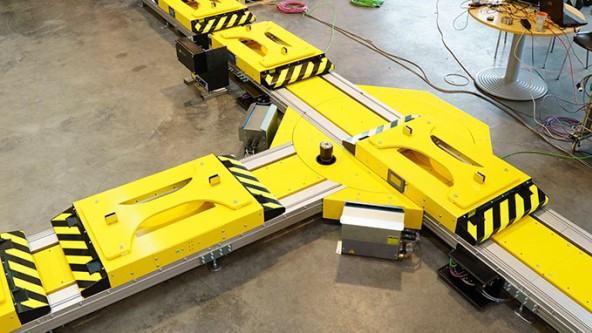
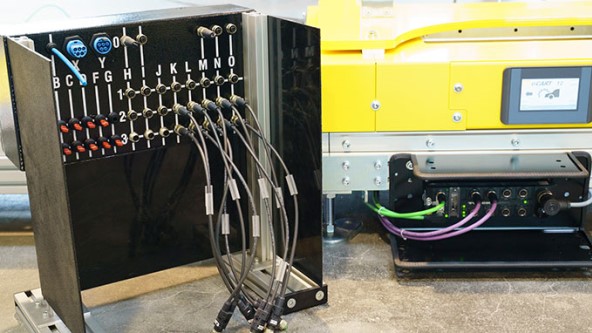
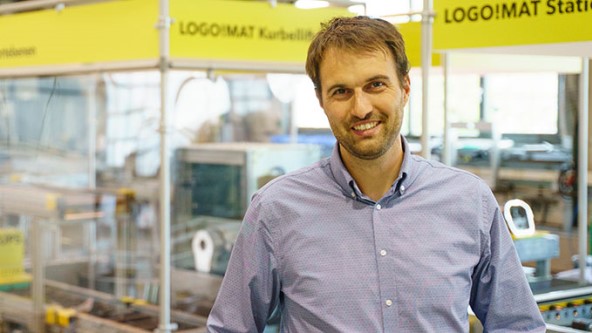
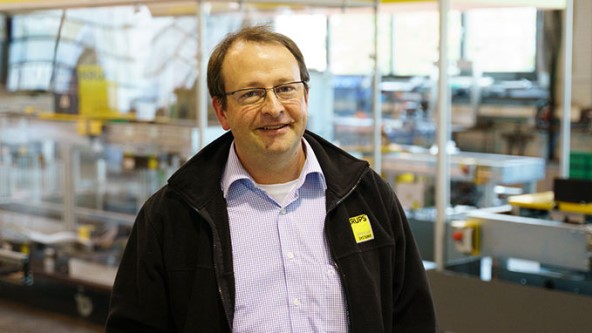
-turck-thumbnail.jpg)




